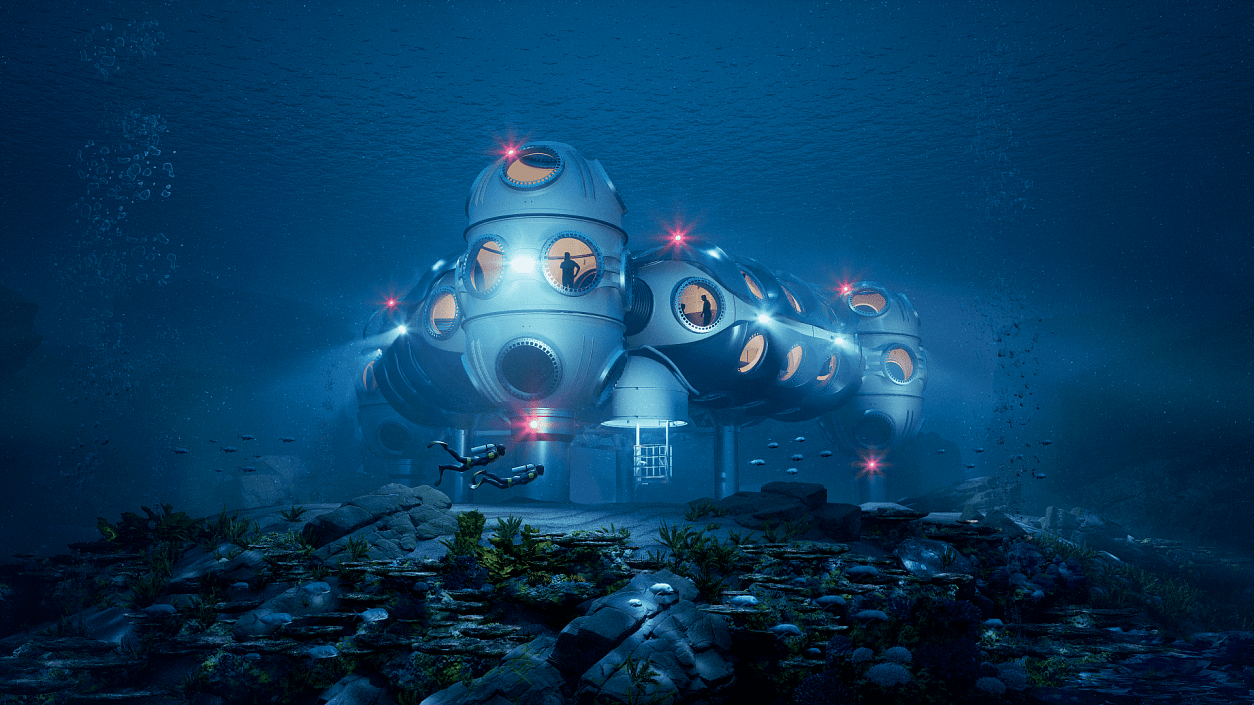
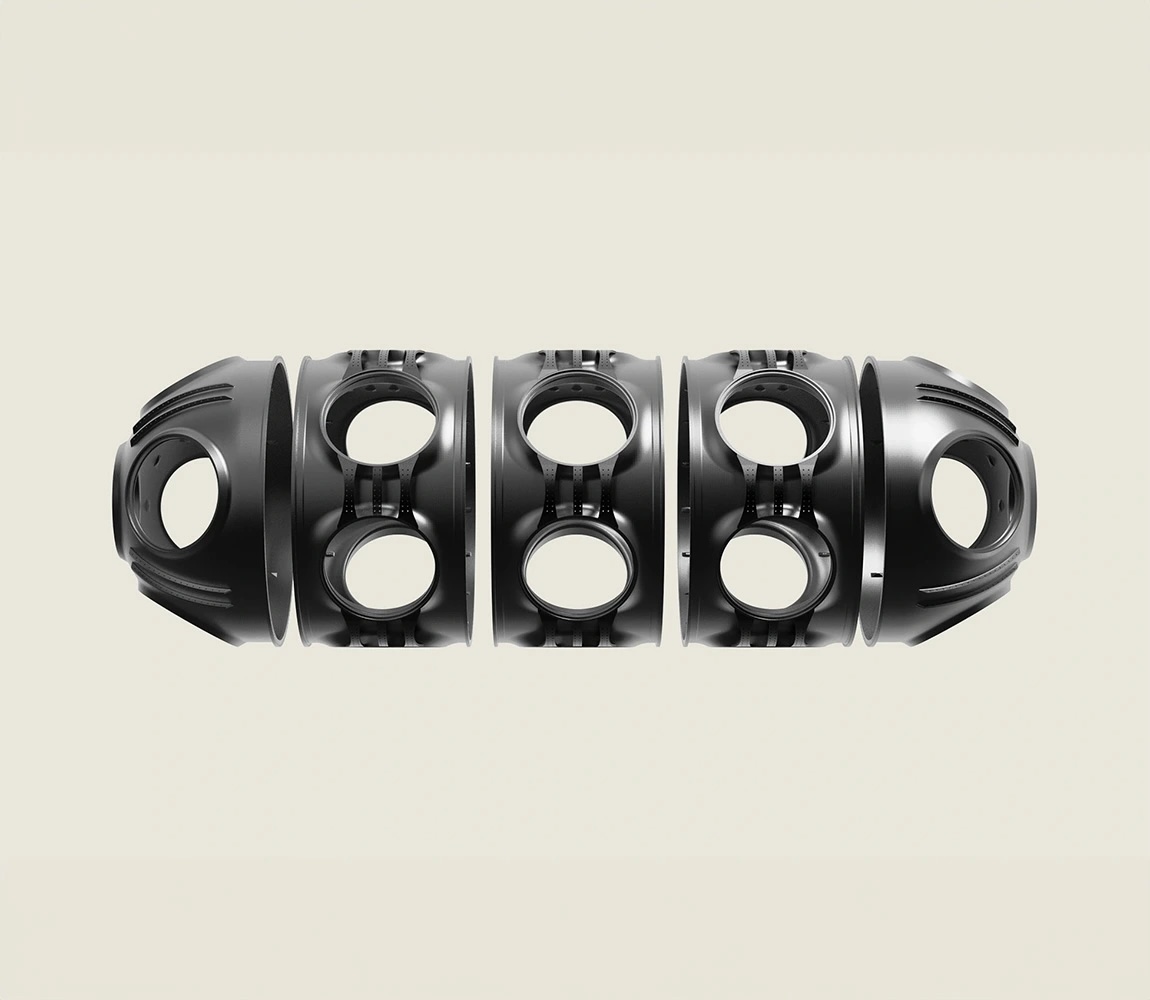
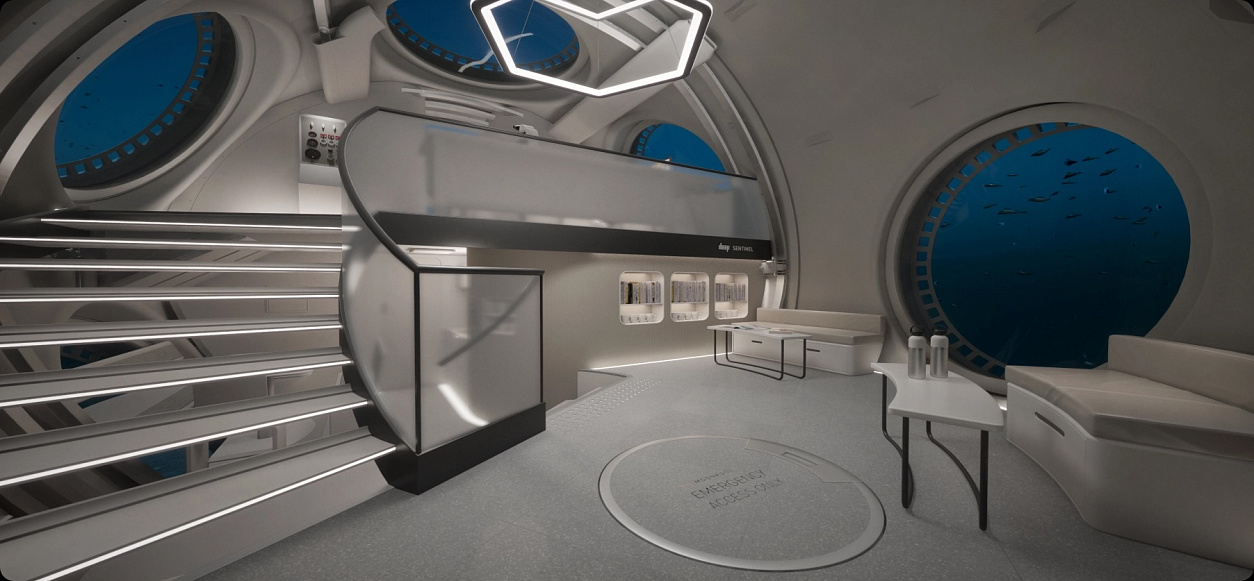
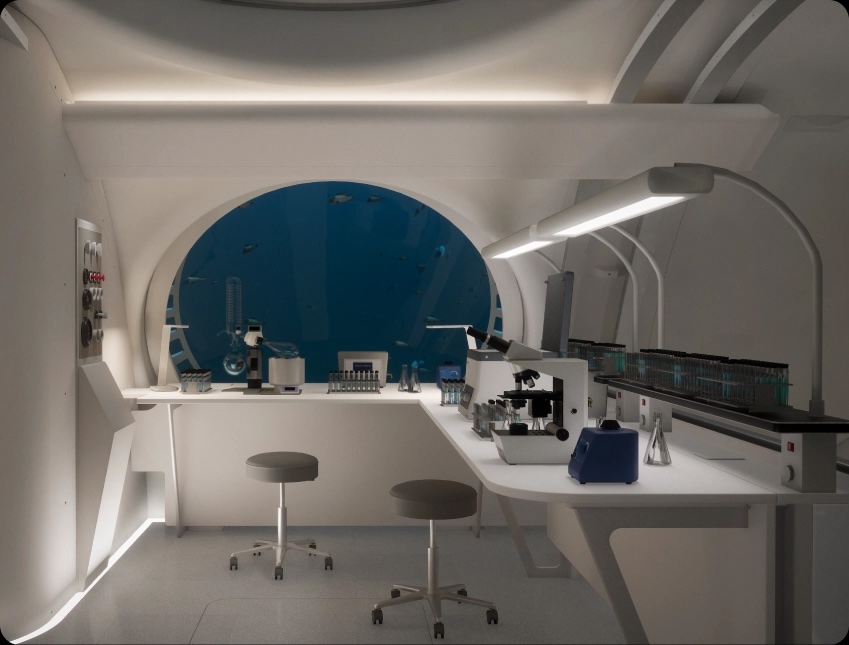
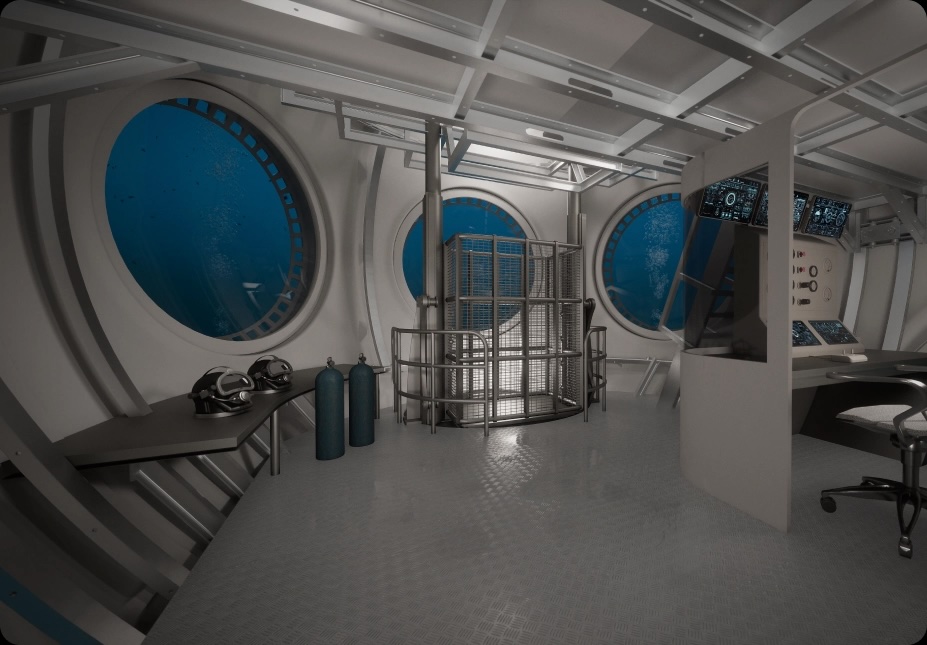
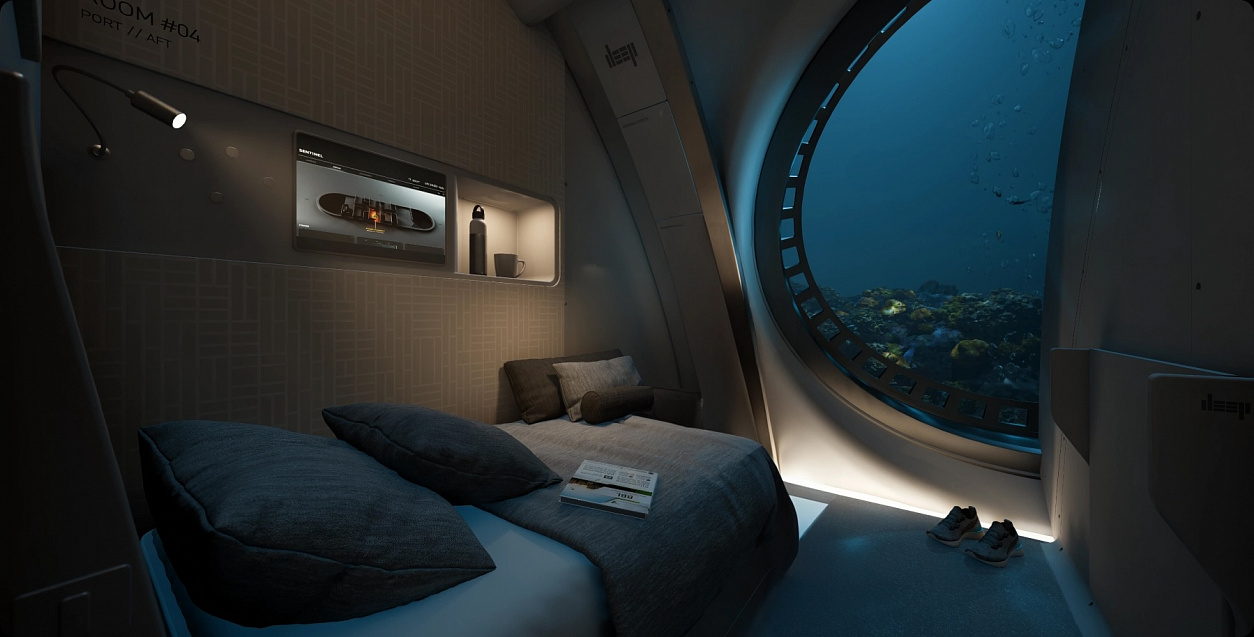
News
10.12.2024
Deep Sentinel: into abyss
Deep to build a futuristic underwater campus for scientific research.
Deep, a company specialising in underwater research and engineering, has announced plans to build an underwater campus that will allow people to live and work on the ocean floor. The ambitious Sentinel project is set to launch in 2027 and aims to facilitate groundbreaking research on the continental shelf.
With the Sentinel habitat, Deep envisions ushering in a new era of ocean exploration, addressing the fact that 95% of the world’s oceans remain unexplored. The company points out that humanity currently knows more about the surface of Mars or the Moon than it does about the ocean floor of our own planet.

The Sentinel complex will consist of modular units constructed using advanced technologies like 3D printing. This approach allows for flexible configurations and minimises construction waste. Each module can be customised for different purposes, ranging from accommodating six people for short-term missions to supporting up to 50 individuals for large-scale projects.

One of Sentinel’s key innovations is its independence from surface support vessels, which are typically required to maintain communication and life-support systems for underwater stations. Instead, the underwater campus will rely on microgrid architecture, renewable energy sources, and satellite communication, making it entirely self-sufficient.

Inside the Habitat Sentinel, residents will find comfortable sleeping quarters, relaxation areas, and dining zones offering a varied menu. The atmospheric pressure within the modules can be adjusted to suit different conditions, making the habitat accessible to both professional divers and those without diving experience.

Panoramic windows in the modules will provide breathtaking views of the surrounding ocean, creating opportunities for what Deep calls “serendipitous science”—unexpected discoveries that arise from prolonged observation of the underwater environment.

By combining cutting-edge technology with an innovative approach to ocean exploration, the Sentinel project promises to revolutionise how we study and interact with the deep sea.
With the Sentinel habitat, Deep envisions ushering in a new era of ocean exploration, addressing the fact that 95% of the world’s oceans remain unexplored. The company points out that humanity currently knows more about the surface of Mars or the Moon than it does about the ocean floor of our own planet.

The Sentinel complex will consist of modular units constructed using advanced technologies like 3D printing. This approach allows for flexible configurations and minimises construction waste. Each module can be customised for different purposes, ranging from accommodating six people for short-term missions to supporting up to 50 individuals for large-scale projects.

One of Sentinel’s key innovations is its independence from surface support vessels, which are typically required to maintain communication and life-support systems for underwater stations. Instead, the underwater campus will rely on microgrid architecture, renewable energy sources, and satellite communication, making it entirely self-sufficient.

Inside the Habitat Sentinel, residents will find comfortable sleeping quarters, relaxation areas, and dining zones offering a varied menu. The atmospheric pressure within the modules can be adjusted to suit different conditions, making the habitat accessible to both professional divers and those without diving experience.

Panoramic windows in the modules will provide breathtaking views of the surrounding ocean, creating opportunities for what Deep calls “serendipitous science”—unexpected discoveries that arise from prolonged observation of the underwater environment.

By combining cutting-edge technology with an innovative approach to ocean exploration, the Sentinel project promises to revolutionise how we study and interact with the deep sea.

Fly me
Digest
05.03.2025
Old House Resort & SPA offers the RC flying experience and flight simulator sessions.
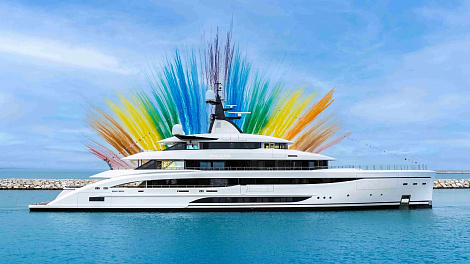
CRN launches 67m Amor à Vida
News
24.01.2025
Formerly known as Project Maranello, the yacht is designed by Nuvolari Lenard and is equipped with a hybrid propulsion system.

Eddie Jordan has passed away
News
22.03.2025
One of the pillars of Formula 1—a businessman, racer, showman, and yachtsman—passed away on March 20.
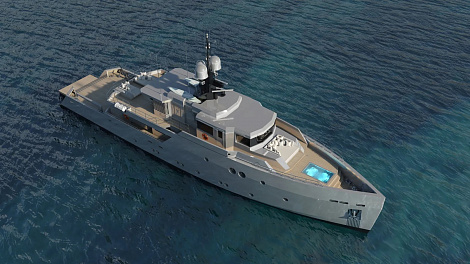
Obsidian Blade from Turkey
News
27.02.2025
The Aegean shipyard starts a new construction project of a military-styled yacht, purchased with cryptocurrency.

J/70 Tenzor International Cup
Regatta
05.03.2025
The second leg of the winter regatta series took place in Aspat Bay in the Aegean Sea.
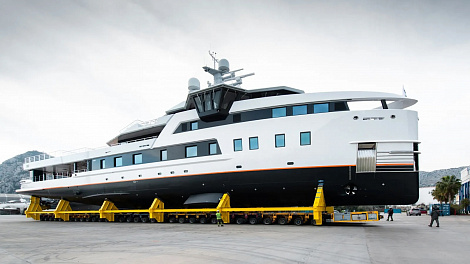
Damen launches 1st 60-meter Xplorer 60
News
17.03.2025
The Dutch brand's new ice-classed expedition yacht continues the tradition of Pink Shadow and La Datcha.

Easy handling from Mercury Marine
News
13.03.2025
Mercury Marine has announced a joystick for boats with a single outboard motor.

1st RAW105 sold by Cantiere delle Marche
News
11.03.2025
Cantiere delle Marche has sold the first hull of the 32 metre Explorer RAW 105.




